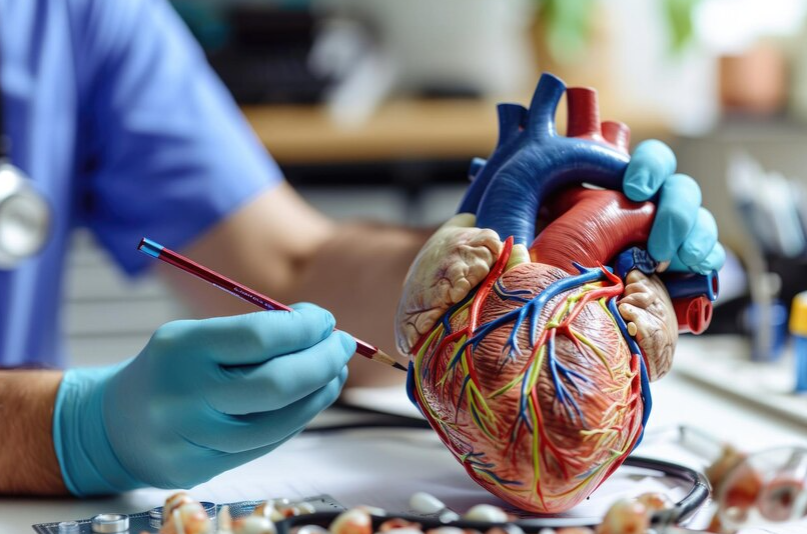Heart valve surgery is a critical procedure aimed at treating heart valve disease, a condition where one or more of the heart’s four valves malfunction. These valves—tricuspid, mitral, pulmonary, and aortic—play a crucial role in regulating blood flow through the heart chambers. Whether through minimally invasive techniques or open-heart surgery, this procedure involves repairing or replacing damaged valves to restore proper heart function.
Why is heart valve surgery necessary?
This surgery becomes necessary to address valve diseases stemming from issues like valve narrowing (stenosis) or leakage of blood (regurgitation). In some cases, surgery may be recommended even without symptoms, with the choice between open-heart or minimally invasive surgery determined after thorough discussion of risks and benefits.
Understanding the risks involved:
Like any surgical procedure, heart valve surgery carries inherent risks, including irregular heartbeat (arrhythmias), infection, heart attack, bleeding, strokes, malfunction of replaced valves, and in severe cases, mortality.
Preparation is key:
Preparation for heart valve surgery typically begins two weeks prior. This involves consulting your doctor about medications, prepping your home for post-surgery recovery, arranging transportation, and undergoing prescribed tests. Special attention to hygiene, such as using antibacterial soap, helps minimize infection risks.
Day before and day of surgery:
The day before surgery involves ensuring bowel movements, packing essentials for the hospital stay, and refraining from eating or drinking. On the day of surgery, further preparations include grooming and showering with provided antibacterial soap.
During the procedure:
This is performed under general anesthesia, with the patient connected to a heart-lung bypass machine to maintain blood flow. The damaged valve is then repaired or replaced with either a mechanical or biological valve.
Recovery and post-operative care:
Recovery from heart valve surgery requires patience and adherence to post-operative care instructions. This includes proper wound care to prevent infections, as well as engaging in physiotherapy and breathing exercises. Following your doctor’s guidance on lifestyle changes is crucial for a successful recovery.
In conclusion, heart valve surgery is a transformative procedure that restores heart function and improves quality of life. By understanding the process and adhering to post-operative care, patients can embark on a journey toward better heart health and overall well-being. Dr. Sanjay Kumar, a renowned cardiologist in Faridabad, specializes in performing heart valve surgery, a vital procedure crucial for maintaining heart health. With his expertise and compassionate care, Dr. Sanjay Kumar ensures optimal outcomes for patients, offering hope and healing through advanced cardiac interventions.

